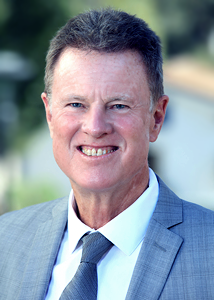Mark Bishop
Adjunct Faculty

- Office
- McCone Building
- Tel
- (831) 647-4155
- mbishop@middlebury.edu
Mark Bishop has been a chemistry instructor at Monterey Peninsula College since 1975 and has taught at the Middlebury Institute of International Studies at Monterey since 2011. He has taught three classes at MIIS: Tools of the Trade (a basic science and math overview for students in both the Nonproliferation and Terrorism Studies Program and in the International Environmental Policy program), Quantitative Methods for Environmental Science and Policy in the International Environmental Science Department, and the chemistry portion of Science and Technology for NPTS.
Bishop’s main focus at the Institute has been on helping students to understand the science and technology related to chemical weapons, including what they are, how they can be described symbolically, how they are produced, their physiological effects on humans, how they are dispersed, the necessary protective gear to avoid exposure, the treatments for exposure, how they can be detected, and how they can be destroyed. He also introduces students to the key components of the Chemical Weapons Convention and the Organisation for the Prohibition of Chemical Weapons.
Mark Bishop has presented at meetings for the American Chemical Society, the Biennial Conference on Chemical Education, and the Two-Year College Chemistry Consortium.
Courses Taught
NPTG 8559
Science & Technology for NPTS
Course Description
This course provides students with a solid foundation in scientific and technical fundamentals critical to nonproliferation and terrorism policy analysis. Such policy analyses often require strong foundational knowledge of basic scientific and technical concepts in order to understand, create, and inform policy decisions. The course begins with an introduction to science and the scientific method and then evolves into the three main areas: biological weapons, chemical weapons, nuclear weapons and relevant technologies. Topics covered in the biological component include fundamental concepts related to microorganisms, DNA, RNA, proteins, and processes of infection and disease. Topics covered in the chemistry component include fundamental concepts related to atomic structure and the periodic table, chemical structural representations, functional groups, reactivity, toxicity, as well as modern separation, purification and analytic techniques commonly used for chemical species. Applications of the fundamental concepts in the first two topics are further developed in relation to features of chemical and biological weapons and warfare, including agents, delivery methods and effects. Topics covered in the nuclear component part of the course includes radioactivity, uranium, nuclear weapons, radiation detection instrumentation and applications, environmental plumes, and various instrumentation and analysis techniques. Upon completion of this course students will have a deeper appreciation for the debate on various verification solutions that have been proposed for compliance under the Biological and Toxin Weapons Convention (BWC), Chemical Weapons Convention (CWC) and nuclear treaties.
Terms Taught
Areas of Interest
Mark Bishop’s main academic interests are chemistry, chemical weapons, and strategies for teaching science. He is an avid cyclist (road bike) and swimmer (ocean and pool). He likes fine dining with friends (two of whom are well-known chefs), watching his daughter play volleyball, walks on the beach with the dog, and hanging out with family (wife, two daughters, a son, and two grandkids). He also edits papers for Chinese scientists who want to publish in American scientific journals.
Programs
Academic Degrees
- MS in Chemistry, University of California, Irvine
- BA in Chemistry, University of California, Santa Barbara
Professor Bishop has been teaching at the Institute since 2011.
Publications
- An Introduction to Chemistry
